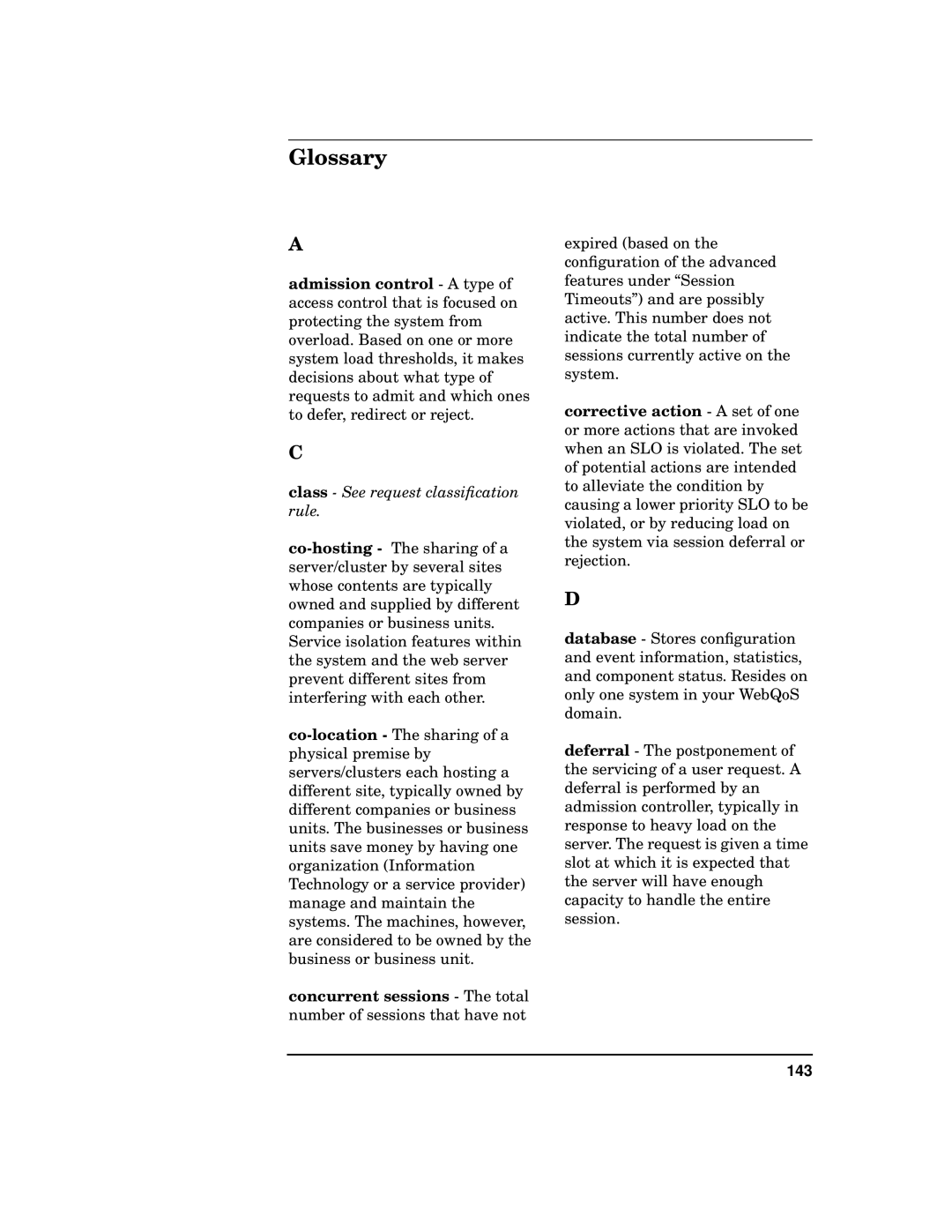
Glossary
A
admission control - A type of access control that is focused on protecting the system from overload. Based on one or more system load thresholds, it makes decisions about what type of requests to admit and which ones to defer, redirect or reject.
C
class - See request classification rule.
concurrent sessions - The total number of sessions that have not
expired (based on the configuration of the advanced features under “Session Timeouts”) and are possibly active. This number does not indicate the total number of sessions currently active on the system.
corrective action - A set of one or more actions that are invoked when an SLO is violated. The set of potential actions are intended to alleviate the condition by causing a lower priority SLO to be violated, or by reducing load on the system via session deferral or rejection.
D
database - Stores configuration and event information, statistics, and component status. Resides on only one system in your WebQoS domain.
deferral - The postponement of the servicing of a user request. A deferral is performed by an admission controller, typically in response to heavy load on the server. The request is given a time slot at which it is expected that the server will have enough capacity to handle the entire session.
